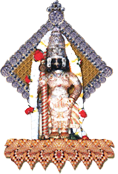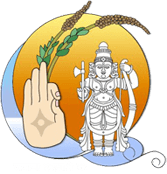मात्रा स्पर्शः तु कौंतॆय शीतॊष्ण सुखदुःख दाः
आगम अपायिनः अनित्याः तान् तितिक्षस्वः भारत ॥ २.१४ ॥
ಮಾತ್ರಾ ಸ್ಪರ್ಶಃ ತು ಕೌಂತೇಯ ಶೀತೋಷ್ಣ ಸುಖದುಃಖ ದಾಃ
ಆಗಮ ಅಪಾಯಿನಃ ಅನಿತ್ಯಾಃ ತಾನ್ ತಿತಿಕ್ಷಸ್ವಃ ಭಾರತ || ೨.೧೪ ||
mAtrA sparshaH tu kauMtEya sheetOShNa sukhaduHkha dAH
Agama apAyinaH anityAH tAn titikShasvaH bhArata || 2.14 ||
Oh Arjuna is it the contact of senses with sense objects alone the cause of pleasure and pain arising from sensations of cold and heat? They come and go and are impermanent. Render them ineffective Arjuna.
Explanation:
Most schools explain this verse as one should just tolerate pleasure and pain as they are impermanent. Such an explanation is no explanation at all for a person in pain. It does not provide any insight.
Arjuna, being aparoksha Jnani, is already aware of the soul and body as explained in 2:12-13. Yet he is sad. So Shri Hari directly addresses the problem of Arjuna in this verse. It is one of the most important verses in Gita.
When Shri Krishna asks Arjuna this “is it the contact of senses alone…”, he expects an answer NO. It is “abhimana” that is is the real crux of the problem. When a person is in deep sleep, he is NOT aware of the sensations of heat of cold even though the sense of touch is working in this case. In other words the jIvAtma does not have abhimana to its body in deep sleep.
Similarly Arjuna’s problem here is attachment to his relatives, namely Bheeshmacharya, Dronacharya etc. I have read this verse before and never realized the depth of knowledge Shri Krishna provides. Anyway the crux of problem is mamakara, identification of objects as mine etc.
So if one gets rid of this kind of attachment with the correct knowledge that all things belongs to Shri Hari alone, one is freed from the dvandva moha of pleasure and pain. This is how one renders the senses and their connection with happiness and pain ineffective.
Shri Subachar also says (I do not fully understand) the verse is to be read in kakusvara. It is to be read in low voice and with contempt which brings the real hidden meaning of the verse.
The restrictive clause “They come and go” is added to show that mere contact between senses and objects alone cannot be responsible for happiness and sorrow or pleasure and pain. This clause restricts the attributes of contact between senses and objects or is predicated of the contacts.


